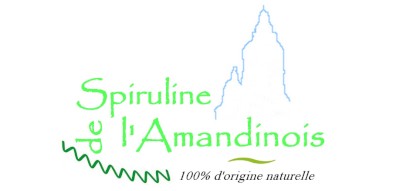No products
Why consume spirulina?

Why consume spirulina? Find out what its antioxidants and vitamins bring to your body.
Why consume spirulina as a cure or before an intense effort or simply to supplement your meals.
1- Spirulina contains antioxidants
Antioxidants are naturally present when you consume our micro algae. Thus, their role is to prevent the oxidation of our cells. And by the way, fight against cardiovascular diseases. Also, prevent the onset of diabetes and they slow down cell aging. So much so that the concentration of chlorophyll, carotene, blue-Phycocyanin, superoxide dismutase SOD and vitamin E pigments are your health allies.
2- Iron, source of energy
Iron is irreplaceable for the functioning of your immune system. Thus, the oxygenation of your blood and your muscles. It participates in the transport of oxygen to all the organs of the body.
3- What are the vitamins contained in peasant spirulina?
Vitamin A for eyesight and tanning.
Vitamins B1, B2, B3, B6, B9 and B12 form a beautiful range useful to the nervous system.
-
Vitamin B1 is necessary for the proper functioning of the muscular and nervous system.
-
Vitamin B2 is essential for energy production.
-
Vitamin B3 intervenes in the mechanism of cellular respiration, associated with Vitamin Vitamin B12, it contributes to the synthesis of DNA and RNA. It plays a role in the metabolism of carbohydrates, lipids and proteins and lowers cholesterol levels.
-
Vitamin B5, is a precursor of coenzyme A, it helps in the growth and resistance of the skin.
-
Vitamin B6 intervenes in its biologically active form, in the reaction of hydrolysis of glycogen into glucose as well as in reactions concerning the metabolism of amino acids.
-
Vitamin B8 is a coenzyme involved in cell growth and fatty acid production.
-
Vitamin B9 is involved in the synthesis of the nucleic bases that make up DNA and RNA. It also plays a role in the formation of red blood cells.
-
Vitamin B12 participates in the synthesis of neuromediators, also intervenes in the synthesis of methionine and in the protection of the myelin sheath of the nerves. It also has an effect on the growth and formation of red blood cells.
Vitamin E
The anti-aging vitamin, it is also an antioxidant. Thus, it has a protective action on red blood cells and prevents platelet hyper aggregation. It would thus protect against cardiovascular diseases. It also has a beneficial effect on cholesterol levels.
Vitamin K
K is involved in coagulation, bone mineralization, cell growth. It has anti-inflammatory properties. Because, it promotes coagulation, thus avoiding bleeding, it also promotes the fixation of calcium by the bones.
3- The benefits of proteins and minerals
Spirulina is a very complete nutritional contribution to accompany. Since in some specific diets all amino acids are subtracted.
Remember that experts recommend eating 5 to 9 fruits and vegetables a day.
However, 3 grams of Spirulina contain as many nutrients. Isn't it extraordinary?

